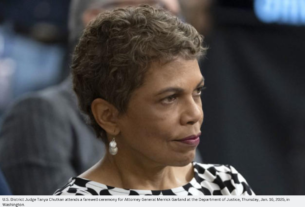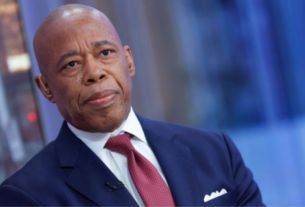The late president is heralded for catapulting human rights into U.S. policy’s limelight, yet his Cold War tactics dance to a familar double standard.
U.S. President Jimmy Carter, who passed away on December 29 at the ripe age of 100, is celebrated for amplifying human rights in American foreign policy. But let’s add a twist: his legacy in Southeast Asia complicates this narrative. The rhetoric of rights was indeed a signature tune, though the melody played out in surprising ways.
As Carter confronted the Vietnam War’s aftermath and sought détente with the People’s Republic of China (PRC), his administration wielded human rights language like a skilled diplomat. It became a strategic weapon—picking targets with care. He aimed criticism at the newly unified, Soviet-aligned Socialist Republic of Vietnam (SRV), but addressing the grim happenings in neighboring Cambodia risked ruffling the delicate process of normalization with China. So while Carter lifted the veil on human rights discussions, he also clung to a well-worn tradition: condemning abuses when they aligned with geopolitical gains. Alas, it’s a labyrinthine legacy the U.S. is unlikely to escape anytime soon.
In the early 1970s, the clarion call for human rights broke free from state sovereignty’s shackles for the first time. Carter was the pioneering politician embracing human rights in his campaign, presenting a vision that sought to restore America’s moral compass abroad. He was an outspoken critic of Nixon and Ford’s foreign policies, yet he deftly dodged any moral confrontation over Vietnam’s harrowing past. His narrative crafted an uplifting platform, knitting together a divided Democratic Party.
When Carter took the presidential helm in January 1977, the notorious Khmer Rouge under Pol Pot were deep into their brutal quest to transform Cambodia into a rural utopia. Just two weeks before Saigon’s fall, they seized Phnom Penh, unleashing a genocide that claimed between 1.5 and 3 million lives. The U.S.’s secret bombings during the Vietnam War had contributed to this destabilization, paving a bloody path for the violently anti-Western, anti-Vietnamese Khmer Rouge’s ascendancy.
In the early 1970s, as the Khmer Rouge’s ilk committed their first waves of violence against ethnic Vietnamese farmers, Chinese leadership recognized the group as a pawns. The PRC began funneling aid to counterbalance Vietnamese and Soviet influence in Indochina. U.S. intelligence reports surfaced with chilling details of the Khmer Rouge’s genocidal ambitions as early as 1973, yet Secretary of State Henry Kissinger urged both Nixon and Ford to look the other way—keeping normalization with China in focus.
This tactic served Nixon and Ford well, but by the time Carter entered the Oval Office, concerned journalists had begun to shed light on Cambodia’s darkening skies, prompting liberal congressmen to implore Carter to confront the Khmer Rouge. But when his administration remained silent, the House International Affairs Committee opened hearings to investigate the dossier of human rights violations, calling forth journalists and Foreign Service Officers formerly stationed in Phnom Penh.
Tensions brewed within the White House about how to respond to the escalating Cambodian crisis. National Security Council’s Jessica Tuchman urged the U.S. to pressure the Khmer Rouge via China, criticizing Carter’s unfulfilled promises to safeguard human rights in Indochina. “People are beginning to notice—talk is cheap,” she warned Zbigniew Brzezinski, Carter’s National Security Advisor, back in October 1977. After a misstep in intelligence scoffed at the PRC’s support for the Khmer Rouge, Brzezinski pushed for a public statement on Cambodia. For a flickering moment in early 1978, it appeared Carter’s human rights commitment and Cold War strategy might tango harmoniously.
At long last, in April 1978, Carter condemned the Khmer Rouge, labeling them as “the worst violators of human rights in the world today.” His words earned applause from the public and media, yet Chinese leaders swiftly expressed their displeasure, accusing him of favoring Soviet interests. Following a trip to China aimed at furthering normalization, Brzezinski cautioned Carter that the PRC’s ire over his condemnation jeopardized détente. Despite Congress’s insistence that Carter press the Chinese to rein in their Cambodian allies, a strategic pivot was made to safeguard Cold War priorities. Thus, Carter’s April 1978 denunciation would be both the first and the last call to action during the Khmer Rouge’s reign. Rather than shunning human rights, Carter and Brzezinski merely redirected their critiques toward Vietnam.
Then came December 25, 1978, when Vietnamese forces stormed into Cambodia. Within a fortnight, they vanquished Pol Pot’s regime, sending Khmer Rouge militants scrambling into the jungles where the PRC continued to supply aid. The Vietnamese effectively concluded a horrific chapter, yet Carter’s administration wasted no time in condemning their invasion fiercely, fretting that a Vietnamese-backed regime could invite a Soviet foothold in Indochina.
In September 1979, the U.S. gained notoriety for voting with China to retain the Khmer Rouge’s seat at the United Nations. Even as Carter tried to justify this move by warning that a different vote could unravel diplomatic relations, internal skepticism simmered. The next month, during a press conference, he pledged $70 million to avert what he called a “tragedy of genocidal proportions” under the Vietnamese-installed Heng Samrin government. While he likened the occupation to the Holocaust, Carter artfully avoided invoking the painful legacy of the millions who perished under the Khmer Rouge’s reign.
The revival of human rights discourse in Carter’s Cambodian strategy correlated with reduced risks of upsetting normalization with China. At this juncture, critiques maneuvered strategically—serving the dual purpose of undermining the new Soviet-aligned regime and fulfilling Carter’s promise to prioritize rights in foreign policy. Brzezinski later admitted that the Carter administration had enabled Khmer Rouge support for its Cold War tactics. “I encouraged the Chinese to support Pol Pot,” he later confessed. “While we could never genuinely support him, China could.”
Today, U.S. strategy in Southeast Asia is framed in the shadows of a new Cold War, a contest against China. As it was then, addressing human rights abuses lingers on the backburner, especially if it jeopardizes this agenda. More than 160 journalists and activists currently languish in Vietnam’s prisons under trumped-up charges of sedition, placing Vietnam at a dismal 174 out of 180 on the global press freedom scale. However, given Vietnam’s strategic allure as an economic partner and shared interests in the South China Sea, the urgent human rights situation seems destined for the back seat—at least for the next four years under an administration fixated on curtailing Chinese influence.
Donald Trump’s pick for Secretary of State, Marco Rubio, has a history of advocating for Vietnamese journalists and environmental defenders, sponsoring the 2017 Vietnam Human Rights Sanctions Act. Nevertheless, it is improbable that Rubio’s past calls to action will steer Trump’s foreign policy. Both know that voicing critiques of To Lam’s government will complicate the burgeoning U.S.-Vietnam Comprehensive Strategic Partnership. Vietnam has made it clear: cooperate under their terms, or they’ll seek solace in China’s embrace.
Engaging with human rights rhetoric can feel straightforward, but let’s not forget—the U.S. will prioritize its own interests every time. While Carter took significant strides for human rights globally, his administration faltered in Southeast Asia. Given the region’s strategic weight in the U.S.-China rivalry, history is poised to repeat itself. The U.S. remains likely to wield human rights language only when it serves geopolitical needs, and this trend shows no signs of abating.




